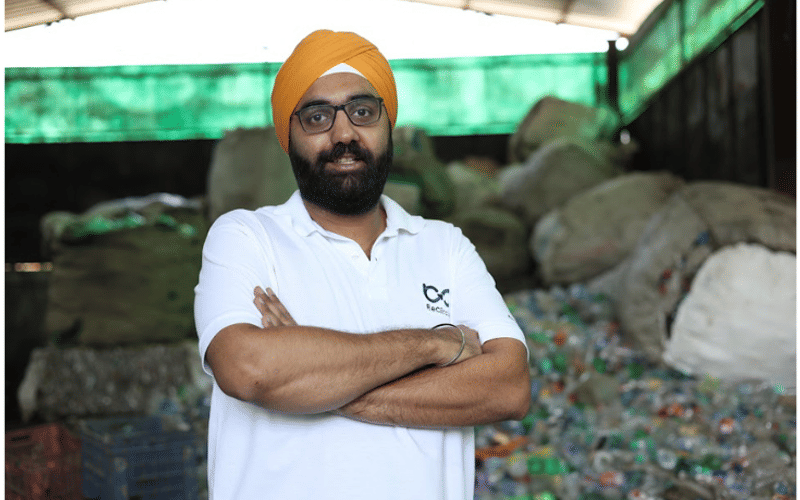Green Horizons: Shaping tomorrow's eco-careers
Gurashish Singh Sahni, Co-Founder and COO at ReCircle talks about climate change and the way forward.
08 Apr 2024 | By Gurashish Singh Sahni
In the face of escalating climate change, the call for sustainable living has never been louder. And as business priorities change and the global economy pivots towards sustainability, the need for eco-careers has become paramount. And this is the way forward, if we want a shot at addressing climate change and creating a better, more circular future for the planet. In such a scenario, there is a pressing need to mobilise the next generation, particularly, Gen-Z, a generation inheriting an environment under threat, towards career opportunities that support this transition to a more circular future.
Green jobs represent a bridge offering careers that directly contribute to reducing carbon footprints, enhancing energy efficiency, and preserving natural resources, among others. However, there is a critical gap in awareness and smart career choices contributing towards addressing climate urgencies. Furthermore, when we talk about green economic transformation, we often miss an important piece of the puzzle: human capacity.
The green spectrum: Opportunities and challenges
As agreed at the recent United Nations COP climate summit, the transition away from fossil fuels will create opportunities for economic development and job creation. From renewable energy to sustainable agriculture, eco-friendly construction to environmental advocacy, the spectrum of green jobs is as diverse as it is promising. Think renewable energy engineers, sustainability consultants, wildlife conservationists and environmental data scientists.
A recent study by Deloitte revealed that over 40% of Gen-Z and Millennials have changed their jobs or plan to due to climate concerns, signalling intent to make a real difference, however there is an existing underlying problem. Many young people lack understanding about the potential impact of green jobs and the pathways available to enter the sector.
According to a report by Savanta and MCS Charitable Foundation, there is a dire need to promote apprenticeships as a viable route to enter the industry, ensuring young people have career opportunities at their disposal. It also highlights the need to demonstrate the impact of green jobs, providing the younger generation with examples on how their work can contribute towards a circular economy. Furthermore, the report calls for an urgent need for public-private institutions to implement recommendations to faster awareness and harness the potential of Gen-Z towards a net zero future. The digital savviness of Gen-Z and an intrinsic motivation for social and environmental justice positions them to lead the charge in the green job revolution.
Is the Future Green?
In order to bridge the gap between Gen-Z or the Millennials and green careers, we mustn’t forget the need to also train and provide the right skills, including specialist technical knowledge before they are equipped to take on green roles. The current problem is that we largely continue to see environmental knowledge and training as someone else’s responsibility. Climate education, skills development (including reskilling and upskilling) are often overlooked as being an integral part of the solution.
Some of the fastest growing green job opportunities exist in some of these sectors; renewable energy, waste management, tourism and sustainable agriculture, but how much are we investing in training programs, job-seeking opportunities and skills development? If we are planning to build a strong foundation for green jobs, we should be thinking about how we are going to transition to these jobs? As we look to the future, the demand for green jobs is only set to increase, as more and more corporations and governments commit to sustainability goals, but, are we ready?


